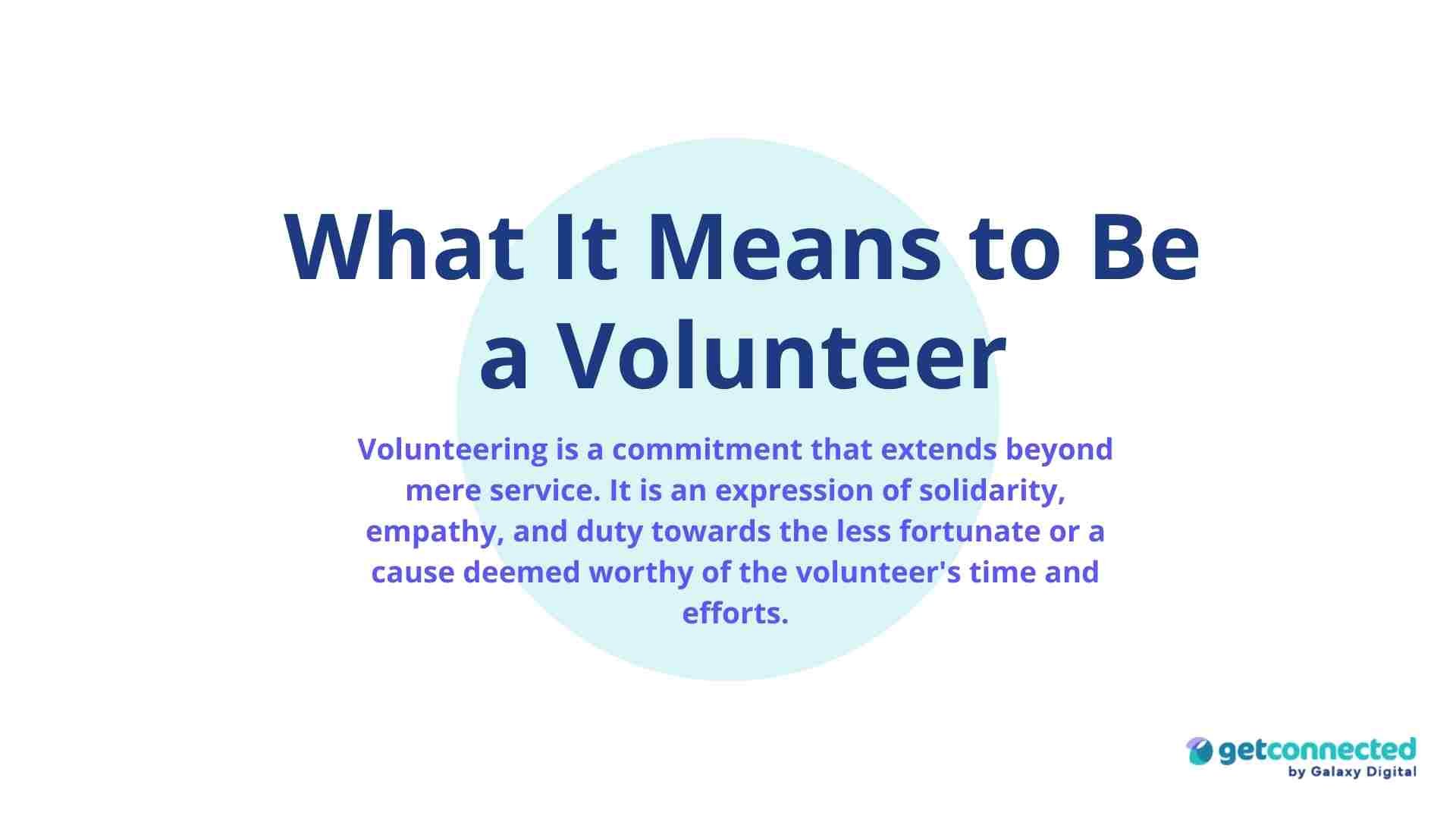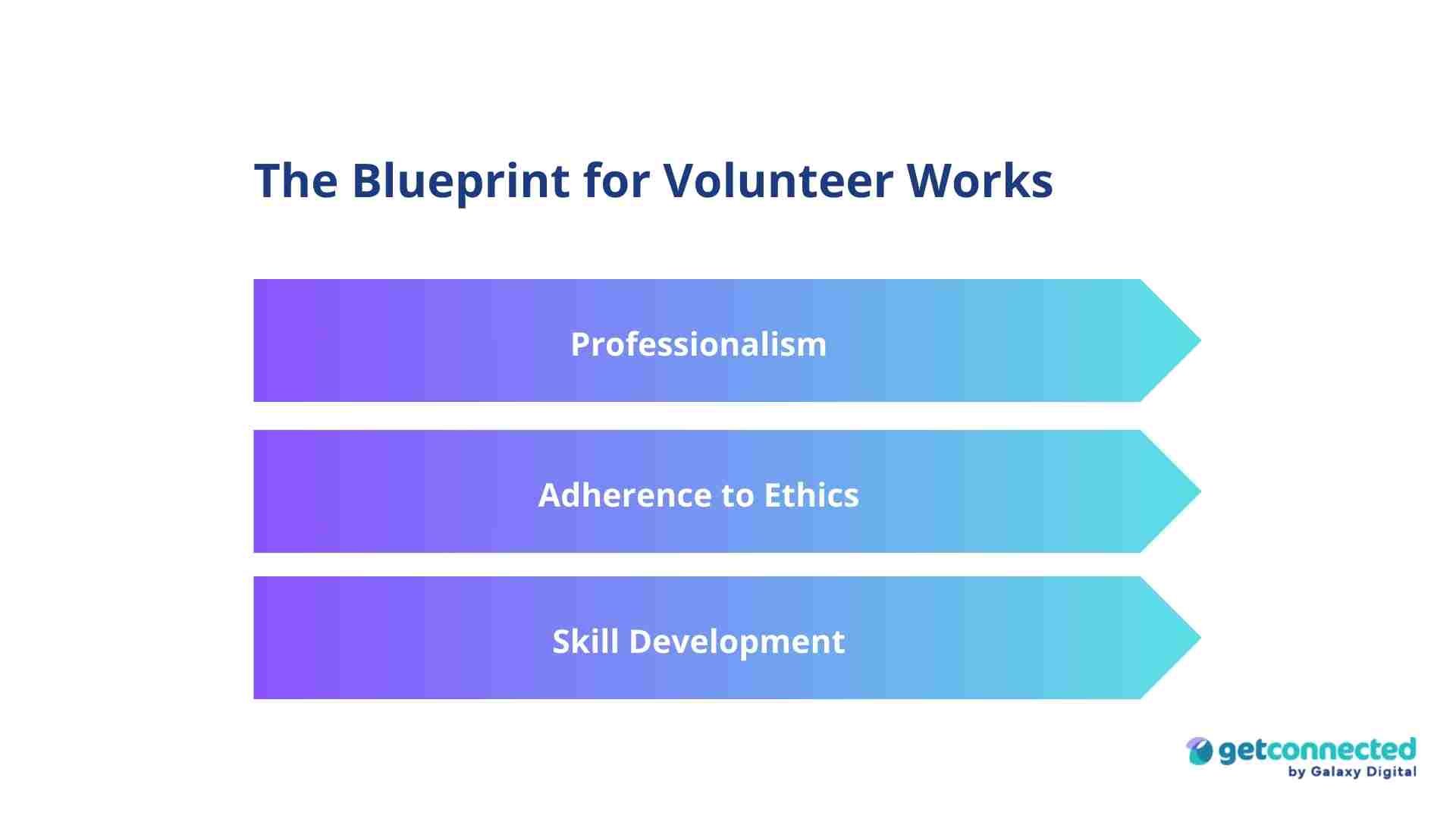Eli Samuels
Volunteering is often seen as a generous and selfless act, where people give their time and skills to help others in need.
But what truly characterizes a volunteer and their actions?
This broad term includes many different roles and tasks, all coming together with the shared aim of helping out without asking for anything in return. Let's explore its many definitions, individual volunteer roles, and the ways in which you can prepare your volunteers for their specific duties.
Article Contents
What is a Volunteer?
The classic definition of a volunteer is a person who undertakes a service willingly, without pay. This straightforward explanation, though, doesn't fully capture the profound essence of volunteering.
This dedication isn't just about donating time; it's about supporting a cause, believing in a mission, and, most importantly, contributing to a collective vision for betterment.
Be it in times of crisis or in the day-to-day functions of a not-for-profit organization, the volunteer is the lifeblood of communal growth. Volunteers embody a connection with society, a roadmap for personal growth, and a moral duty all intertwined.
What is the Purpose of Volunteerism?
Volunteerism serves a multifaceted purpose, addressing societal, individual, and organizational needs.
It cultivates a sense of responsibility and solidarity among citizens, making communities more cohesive and resilient. On a personal level, volunteering offers a heightened sense of fulfillment and purpose.
The Greater Connection
- Societal Impact: Enhances the infrastructure of support, especially in areas that need it the most.
- Enhanced Societal Health: Volunteering is known to improve one’s mental and physical health, fostering a sense of happiness and a decrease in stress levels.
- Fostering Collaboration: Within organizations, volunteerism breeds cohesion and a shared ethos, advancing a common mission through varied and collaborative means.
What It Means to Be a Volunteer
Volunteering is a commitment that extends beyond mere service.
It is an expression of solidarity, empathy, and duty towards the less fortunate or a cause deemed worthy of the volunteer's time and efforts.
Volunteering - what's it all about?
- Compassionate Groundwork: It's like turning empathy into action, showing that deeds carry more weight than words.
- Surplus Generosity: Going above and beyond, seeing what you have as tools to help and heal.
- A Common Thread: Whether you're rich or poor, from any background or belief, volunteering brings people together in a shared act of love.

What Are the Roles of a Volunteer?
Volunteers take on various roles matching the causes they support. From frontline responders to strategists, volunteers wear multiple hats.
Volunteer Titles and Functions
- Field Volunteer: Directly engages with communities, offering hands-on assistance in various projects.
- Administrative Volunteer: Provides support with organizational tasks, keeping the machinery of service well-oiled and efficient.
- Mentor or Coach: Imparts their knowledge and skills to others, creating a sustainable cycle of learning and personal growth.
- Advocate: Raises awareness and champions for the underrepresented, often speaking on behalf of those without a voice to drive positive change.
- Event Organizer: Orchestrates charity events and fundraisers, ensuring these gatherings not only raise awareness but also foster community spirit.
- Social Media Ambassador: Uses digital platforms to amplify the message of the organization, reaching a wider audience to drum up support and engagement.
- Environmental Champion: Focuses on sustainability and conservation efforts, actively participating in clean-ups and advocating for eco-friendly practices.
- Healthcare Helper: Offers support in medical camps and health awareness campaigns, providing a comforting presence to those in need of care.
- Educational Tutor: Dedicates time to tutoring children and adults alike, believing in the power of education to uplift communities and open new doors.
Each of these roles plays a pivotal part in the ecosystem of volunteerism, contributing unique skills and passions towards achieving a collective goal.
Remember, while the title might differ, the underlying purpose remains the same—making a positive impact, one act of kindness at a time.
Volunteer Role Types
Volunteering is not a one-size-fits-all deal. You can choose to match volunteers based on their skills and interests, ensuring a meaningful entry into the world of service. Common volunteer roles include:
Direct Service Volunteer
This role is at the forefront, directly engaging with individuals in need. Volunteers in this category may be found serving meals at shelters, tutoring students, or even building homes.
Indirect Service Volunteer
Those who provide support services behind the scenes fall into this category. Think of the volunteers coordinating events, handling administrative tasks, or offering strategic guidance as part of a non-profit board.
Advocacy and Activism
Some choose to volunteer by being a voice for the voiceless. These volunteers are instrumental in raising awareness, lobbying for change, and ensuring that the needs of the underserved are addressed at a societal level.
Skills-based Volunteer
Professional or personal skills can be invaluable when applied to a volunteer position. Whether it’s an architect drawing plans for a community center, or a photographer capturing the stories of local struggles, their skills can make a significant impact at your organization.
What Are the Responsibilities of a Volunteer?
The responsibilities of a volunteer can range from fulfilling specific tasks to representing an organization or cause.
While varied, these responsibilities all lead towards achieving the philanthropic or mission-oriented end goal.
The Blueprint for Volunteer Works
- Professionalism: Volunteers must approach their roles with the same level of professionalism as paid staff to maintain organizational integrity.
- Adherence to Ethics: Volunteers often act as the face of an organization, hence their conduct should consistently align with the fundamental values of the organization.
- Skill Development: Engagement in volunteering can, and often should, lead to the acquisition and refinement of new skills.

What Are the Various Volunteer Types?
To categorize volunteering is to acknowledge its myriad forms. Understanding the types of volunteering can help organizations and volunteers alike to match skills, interests, and availability effectively.
- Skills-Based Volunteering: Matches a volunteer’s professional skill set with an organization’s needs, ensuring the most efficient and impactful use of time.
- Event Volunteering: Offers short-term opportunities, like helping out at a fundraiser or a marathon, which can act as a great entry point for new volunteers.
- Virtual Volunteering: The digital age has birthed this form, enabling volunteers to contribute to causes remotely, no matter their location.
Preparing Volunteers for Service
Preparing volunteers for duty involves more than just task lists; it nurtures their understanding and connection to roles. Start with a solid orientation, introducing the organization's mission, values, and role specifics. Think of it like the first day of school – daunting but exciting to learn new things.
- Volunteer Recruitment: Matching passion with purpose is key. Clear communication of organization goals and role impacts is vital. Use social media, community boards, and word-of-mouth to recruit volunteers.
- Orientation: Make day one count! Immerse volunteers in your organization's culture for a sneak peek into your mission.
Next, focus on training – hands-on, engaging, and relevant. Equip volunteers with skills for fundraising, project management, and their roles.
- Volunteer Onboarding and Training: Tailor, make it interactive, and keep it ongoing. Empower volunteers for greater impact.
Providing continuous volunteer supervision, support and feedback is crucial post-training. Offer a direct line for questions, feedback on progress, and maintain motivation.
- Support and Feedback: Like maintaining a car; regular check-ins keep things smooth. A well-prepared volunteer is your best asset, worth the time and effort invested in their readiness.
Preparing Volunteers For an Event
Understanding the essence of event volunteering is as crucial as recognizing the role you'll play. But how can you make the most of your involvement without proper preparation? To be a valuable event volunteer, align your readiness with the event's objectives. Here's how to get it right:
1. Understand the Event's Purpose
Get familiar with the event's core objectives. The purpose serves as your guide, leading you towards making a meaningful impact.
2. Know the Attendees
Each event audience has specific expectations and needs. The better you understand the attendees, the more effective your volunteer efforts will be.
3. Sharpen Your Skills or Acquire New Ones
Volunteering is not just about contributing; it's also about enhancing your abilities. Whether you're leveraging existing skills or acquiring new ones, every opportunity is a chance for personal growth.
4. Prepare for the Event's Atmosphere
Engaging in event volunteering can evoke various emotions. Be ready to handle the emotional aspects by setting boundaries and prioritizing self-care practices.
In Conclusion
At the heart of any vibrant community beats a vital pulse driven by volunteers. It's their collective commitment, shared vision, and hands-on dedication that propel meaningful change.
Remember, volunteering is more than just giving; it's a reciprocal exchange that provides invaluable experiences, skills, and connections.
Whether you're starting your first volunteer journey or you're a seasoned pro looking to expand your impact, always keep in mind - your contribution is the lifeblood of community advancement.





